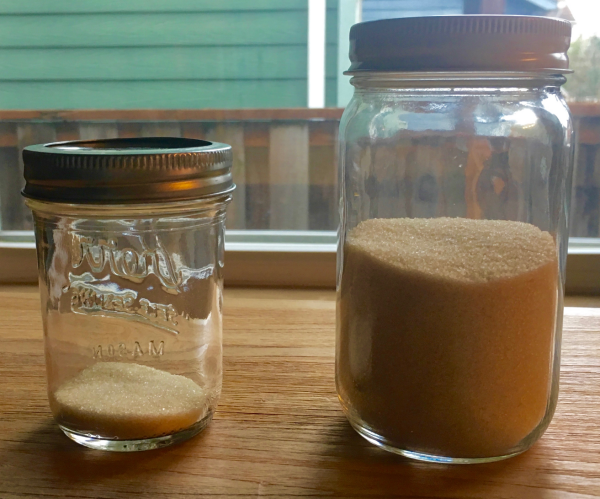Three Ways Sugar Is Sabotaging Your Training Plan and How to Get Control
When training for a race, we log so many hours running, lifting weights, stretching, and recovering. But are we actually getting the full benefit of all that hard work? It’s so easy as runners to think, “I’m burning all these calories so it doesn’t really make a difference what I eat.” And while some runners do lose weight while training without making any dietary changes, what we eat can impact so much more than our weight. Let’s talk about a few ways excessive sugar can be detrimental to your training and how to get back in control of sugar intake.
So what are some ways that sugar is especially tough on runners?
- Sugar depresses the immune system. Regularly eating an excess of refined sugar depresses white blood cell activity, making it harder for you to fight off bacteria and other invaders. Think about how a bout of sickness can derail a training plan, and then think over how much added sugar you’re getting each day from desserts, soda or energy drinks, and sports nutrition like GU and Shotblocks. Since sugar will reduce our ability to fight sickness, it may be worthwhile to get rid of a couple sources of sugar.
- Sugar can reduce cardiovascular function. The adrenal glands are involved in a variety of processes in the body, including dilating the bronchial tube and increasing blood flow to our limbs when we’re stressed or exercising, as well as regulating blood sugar levels. When we regularly eat too much sugar, our whole system of blood sugar management gets off balance and our adrenal glands need to kick in more often than they should to help out. Then when we’re also asking our adrenal glands to support a training plan that requires a lot of cardiovascular output, we may not get the results we’re looking for or understand why. It could be that sugar is the culprit.
- Sugar can prevent us from sleeping. The adrenal glands we discussed above are important for another function: releasing cortisol – a hormone that control our energy levels. We’re supposed to have the highest cortisol in the morning, and a gradual decline throughout the day, with our lowest levels at night. This helps us wake up energetic and ready to take on the day, as well as fall asleep and stay asleep all night. If we have irregular adrenal gland function due to excessive sugar in the diet, our cortisol levels may be too high at night to sleep soundly and get that precious recovery time needed while training.
In order to get the most out of those long, hard miles you put in while training for a race, it’s critical to manage the amount of sugar you consume. But in today’s society it can be really tricky: sugar is in EVERYTHING. This picture below shows the average daily sugar consumption by an American in 1821 (left) vs today (right). That’s a staggering difference, right?

If you want to learn more about how sugar impacts us, and take some active steps to get on top of your sugar consumption, I suggest you check out my next RESTART Class: part nutrition education, part community support group, with a three-week sugar detox built in. It’s a great tool for runners before you really start ramping up mileage for summer races. Doing a sugar detox like this is a great first step kicking the sugar addiction so many of us struggle with, and getting back in control.
Interested in reading more about sugar? Check out these posts on how much sugar is healthy to eat and why natural sweeteners are better than refined and artificial ones.
 Barb Skinner is a Nutritional Therapy Practitioner who loves coaching runners with busy schedules to eat a diet that helps them race faster and have consistent energy while training. She is a runner and triathlete and has competed in several marathons and Half IronMan triathlons. She offers customized nutrition plans and group sugar detoxes – learn more at www.liveandeatnutrition.com or email her at barb@liveandeatnutrition.com.
Barb Skinner is a Nutritional Therapy Practitioner who loves coaching runners with busy schedules to eat a diet that helps them race faster and have consistent energy while training. She is a runner and triathlete and has competed in several marathons and Half IronMan triathlons. She offers customized nutrition plans and group sugar detoxes – learn more at www.liveandeatnutrition.com or email her at barb@liveandeatnutrition.com.
Connect With Us
see the latest from Fleet Feet PDX